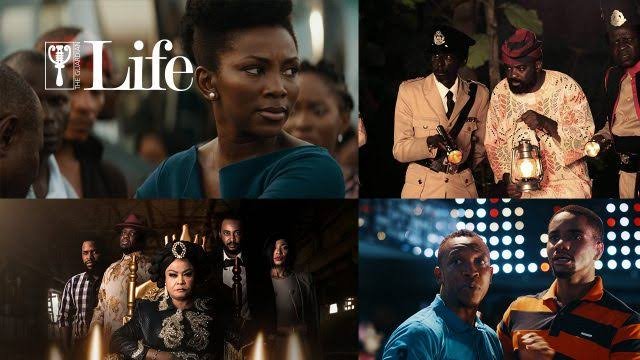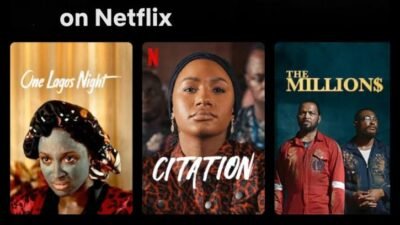
We Nigerians are known for our vibrant culture, especially when it comes to music and movies. Our entertainment industry, nicknamed Nollywood, is the second largest in the world, pumping out over 2,500 movies per year. Our music stars like Wizkid, Davido, and Tiwa Savage top charts across Africa and collaborate with major Western artists. The beats and rhythms of Afrobeats, fuji, and juju music get people on their feet from Lagos to London.
There’s no doubt that entertainment is woven into the fabric of Nigerian life. In this article, we’ll give you an inside look at the stats and stories behind Africa’s largest creative industry. You’ll learn how Nollywood became a cultural powerhouse, meet the music producers crafting the sounds of the continent, and discover some of the major hubs of Nigeria’s entertainment scene. Get ready to experience the energy, passion, and rhythms that fuel Nigeria’s nonstop creativity. The spotlight is on – the show is about to begin!
Nigeria’s Vibrant Music Scene: Afrobeats Goes Global

We Nigerians are proud of our vibrant music scene. Afrobeats, our contemporary pop genre, has exploded onto the global stage in recent years. Artists like Wizkid, Davido, Tiwa Savage, and Yemi Alade have gained international fame, collaborating with major Western artists and signing record deals with labels like Sony, Universal, and Warner.
Afrobeats fuses elements of hip hop, dancehall, highlife, and traditional Nigerian music. The beats are infectious, the lyrics often celebrate love and good times. No wonder this sound has resonated around the world! Many see Afrobeats as helping to shape a new, modern African identity that’s confident, stylish, and proud of its cultural heritage.
The Rise of Nollywood
Nigeria also boasts Nollywood, one of the largest film industries in the world. Thousands of movies are produced each year, most going straight to DVD and streaming. Nollywood films are hugely popular across Africa and the diaspora.
While production values are often low, Nollywood movies explore themes relevant to Nigerian life – family issues, relationships, and the challenges of urban living. More big-budget films are raising production quality, and streaming has provided new distribution opportunities. Both local and foreign investors are taking interest in Nollywood.
From music to movies, Nigeria’s creative industries are making their mark globally. There’s so much talent here, and the world is finally paying attention. The future looks bright for entertainment in Nigeria!
Nollywood: The Second Largest Film Industry in the World

When it comes to movies, Nollywood is a juggernaut. As Nigerians, we love our films! Nollywood produces over 2,500 movies per year, making it the second largest film industry in the world after Bollywood in India.
A Brief History
The film industry started growing rapidly in the 1990s when new technology made film production more accessible. The first major film was Living in Bondage in 1992, which explored supernatural beliefs in Nigerian culture. Since then, Nollywood films have explored a range of genres like action, comedy, and drama.
Many Nollywood films are produced in just 1-2 weeks with small budgets. They’re also usually released straight to DVD and streaming, though some do make it to theaters. The films are immensely popular across Africa and the diaspora.
What’s Driving Growth?
Several factors are fueling Nollywood’s rise. First, Nigeria’s huge population of over 200 million people represents a massive potential audience. Internet access and streaming media have also made Nollywood films more available worldwide.
Government support and private investment in the film industry have increased. The demand for Nigerian content on streaming platforms like iROKOtv and Netflix has provided new funding and distribution opportunities for filmmakers.
The future looks bright for Nollywood. As infrastructure and technology continue improving, films are gaining higher production values and wider reach. Nollywood is poised to become an even greater force in global cinema. Our stories deserve to be told, and the world is finally listening.
Stand-Up Comedy and Theater Thrive in Lagos and Beyond

Comedy shows and live theater are thriving in Nigeria, especially in Lagos. We have a vibrant stand-up comedy scene, with new comedians popping up all the time. Some of the biggest names in Nigerian comedy started out doing open mic nights at small clubs, building their skills and fan base.
Now we have full-scale comedy shows at large venues, and big-name comedians tour nationally. Ali Baba, Basketmouth, Bovi, and Akpororo are household names and comedy legends. They tell jokes and stories that resonate with Nigerian life, pointing out the humor and absurdities in our daily struggles.
Live theater is also popular, bringing Nigerian stories to the stage. We have musicals, dramas, and comedies performed in English and local languages like Yoruba, Igbo, and Hausa. The National Theater in Lagos, built in 1976, is an iconic venue that hosts all kinds of live shows. Smaller theaters across Lagos and in other cities are springing up too, highlighting emerging playwrights and producers.
While Nollywood movies dominate screens, live entertainment gives us a chance to experience culture together in person. Whether you’re in the audience cracking up at a comedian’s joke about terrible Lagos traffic or transported to a different time by a powerful stage play, these shared moments of joy and connection are what bring us together. Live shows are keeping Nigerian traditions of storytelling, humor, music, and theater alive for new generations.
The entertainment industry in Nigeria continues to grow rapidly. Our comedians and playwrights are gaining more international fame, touring abroad and even collaborating with major US and UK producers. As streaming opens up more global audiences, Nigeria’s vibrant culture and artistic talent are being shared with the world. The future of live entertainment here is bright.
Reality TV and Talent Competitions Captivate Nigerian Audiences

We Nigerians love our reality TV and talent competitions. They’re hugely popular and give aspiring stars a chance at fame and fortune.
Big Brother Naija
Big Brother Naija, the Nigerian version of Big Brother, is a massive hit. Each season, housemates live together under constant surveillance, competing in challenges and getting eliminated until there’s one winner. Viewers vote for their favorites and follow all the drama on social media and 24-hour live streams. The show’s finale and reunion specials draw tens of millions of viewers. Past contestants have gone on to become social media influencers, actors and musicians.
Nigerian Idol
Nigerian Idol is the Nigerian version of the Idols singing competition franchise. Aspiring pop stars compete for a recording contract by performing live in front of celebrity judges and voters at home. The show has discovered amazing vocal talents like Timi Dakolo, Mercy Chinwo and Olawale Ojo. The season finales rank among the highest-rated TV specials.
Other Shows
There are talent shows for dancers, comedians, and more. Shows like Nigeria’s Got Talent, Dance Nigeria Dance and Comedy Clash give contestants opportunities to showcase their skills and win cash prizes or contracts. Some have gone on to achieve mainstream success.
These programs are hugely influential in Nigerian pop culture. They’ve launched countless careers, made judges into celebrities, and brought families together in front of the TV each week. Love them or hate them, talent competitions and reality shows aren’t going anywhere soon. They’ll continue creating overnight stars and keeping us entertained for years to come.
Live Events and Concerts Draw Huge Crowds Across Nigeria

Live music events are hugely popular across Nigeria. We flock to concerts, festivals, and shows in droves. According to a 2019 report, Nigeria has the largest music concert attendance in Africa, with over 3.5 million people attending shows that year.
Concerts for Every Taste
Whether you prefer afrobeats, hip hop, reggae, or rock, there’s a live show for you. Major artists like Wizkid, Davido, Burna Boy, and Yemi Alade frequently tour the country, playing to packed stadiums and arenas holding tens of thousands of people. Smaller acts also tour, playing more intimate club shows. Music festivals like Felabration, LoudNProud Festival, and Born in Africa Festival celebrate a range of genres over multiple days.
Energy Like Nowhere Else
The energy at Nigerian concerts is truly like nothing else. When a hit song comes on, the crowd erupts in dance and song. Flags wave, hands clap, and groups of friends link arms and sway together. Enthusiastic fans rush the stage, hoping for a selfie with their favorite artist. The vibrant sense of community and shared joy at these shows is unparalleled.
An Industry Driver
The live music scene is an economic powerhouse in Nigeria. Concert promotion has become hugely profitable, and ancillary industries like transportation, hospitality, food & beverage, and event production all benefit. The ripple effects on local communities where these events are held are substantial. Live events also drive interest in recorded music, social media follows, and merchandise sales.
Nigerian music is meant to be experienced live, with thousands of other devoted fans. The energy, community, and carnival-like atmosphere at these shows create cherished memories that last long after the final encore. Live events are the beating heart of entertainment in Nigeria, and their impact reverberates far and wide.
Conclusion
On that note, we’re going to wrap up our tour of music and movies in Nigeria. The entertainment industry here is booming, and it’s been fascinating to dig into the stats and stories behind the growth. Nigeria’s creative spirit is inspiring, the music is addictive, and Nollywood films are capturing the world’s attention. With streaming opening up global audiences and investment pouring in, the future looks incredibly bright for Nigerian artists and producers. We hope this glimpse into the culture and commerce of music and movies in Nigeria left you wanting to discover more. There’s so much talent and passion here, we have a feeling this industry is going to achieve even bigger and better things in the years to come. What an exciting time for entertainment in Nigeria!










![Wizkid shows off perfect moves to Portable’s Zazu Zeh song in a club [Watch] Wizkid shows off perfect moves to Portable’s Zazu Zeh song in a club [Watch]](/wp-content/uploads/2022/01/PicsArt_01-14-09.38.16-390x220.jpg)
